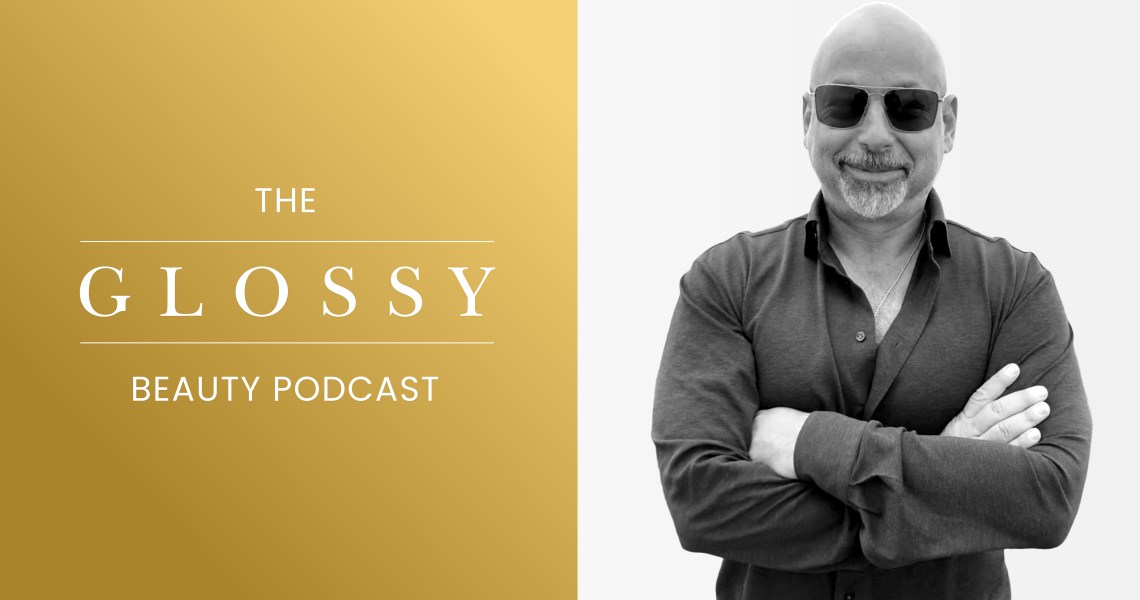Subscribe: iTunes | Stitcher | Google Play |Spotify
Unlike those suddenly hopping on the bandwagon, Robert Rosenheck has been working in cannabis for years.
Growing up in a conservative family, Rosenheck avoided the recreational drug until finally sampling it with some friends during his senior year of college. He found it gave him a temporary release from the depression he had been struggling with for years. A few short years later, after a rock climbing accident left him with a broken ankle and chronic pain, he discovered that topicals infused with cannabis helped alleviate some of his suffering.
In 2013, Rosenheck and his wife, Cindy Capobianco, decided it was time to create a brand of their own that celebrated cannabis. Thus, Lord Jones was born.
Over the past six years, Lord Jones has garnered endorsements from celebs like Mandy Moore, entered retail partnerships with SoulCycle and Sephora, and most recently, announced a $300 million acquisition from Canadian pot company Cronos.
But with all of the brand’s success, Rosenheck said the stigma and confusing regulations surrounding CBD and cannabis remain big challenges.
Ad position: web_incontent_pos1
“The consumer is so far out in front of the regulators and lawmakers,” said Rosenheck. “The Farm Bill made hemp legal, but it also [relies on] the federal and state governments to regulate it. But right now, there isn’t a lot of regulation, and there isn’t a lot of education. People are really hungry for education, so it’s falling on the brands to educate people as to what the products are, what the dosages are and how to use the products. We definitely need more regulation and education so that consumers have this information available to them.”
On this week’s episode of The Glossy Beauty Podcast, Lord Jones founder and CEO Robert Rosenheck sits down with Glossy’s Priya Rao to discuss what makes a quality CBD product, what makes SoulCycle and Sephora the perfect retail partners, and whether the brand will branch out to THC. Edited highlights below.
What to look for in CBD products
“The good news is that most of the companies that are serious about CBD self-regulate. We work together and share information, and understand the responsibility we have to get it right. I would say that most of the brands you find in large stores are now pretty responsible, but you definitely want to make sure of a couple things: First of all, you want to make sure that the hemp, the CBD is derived from is from the U.S. and not from abroad. One of the problems is that the hemp plant really soaks up a lot of the environmental toxins that surround it. There’s a lot of CBD that comes from China, and not all of their CBD is tainted, but there’s a lot of pollution there, so there’s a chance that these hemp plants are drawing in these chemicals. The way the CBD is extracted from the hemp plant is also super important. You want to make sure that it gets tested for chemicals and pesticides, and then you want to be sure that you’re getting products that are sourced with either a broad-spectrum or full-spectrum CBD oil, and stay away from products that have an isolate. An isolate often comes from outside the U.S. and is a cheaper, more refined CBD. You want a CBD that has the other phytocannabinoids, terpenes and other constituents of the hemp plant, because it makes the CBD more bioavailable.”
Choosing the right retail partners
“One of the reasons we decided to partner with Sephora and not with others was because they’re the preeminent beauty retailer in the world. These people are super smart, progressive and dedicated, and they care about their consumers much like we care about ours. Sephora doesn’t have the most stores, but they have very productive stores and incredible customer loyalty. If I’m looking at a distribution landscape, I’d rather go with someone who has a really deep relationship with their consumers, rather than someone who has a really wide but shallow relationship.
THC ambitions
“The challenge with THC is that there’s a completely different set of laws and regulations governing it and CBD. We started as a THC company, and then we were selling THC products on one side and CBD on another. Then we transitioned to only CBD products. Right now, that’s the opportunity for us, and that’s where our focus is. We definitely intend to return to THC one day, but that’s really dependent on how all of these laws develop. We work actively with regulators and lawmakers on the local, state and federal levels. One day, I predict — and hope — that all of these laws will come together in one system, because if you look at THC, it’s just a constituent of the cannabis plant. Same with CBD. I think the proper way to regulate these molecules is to look at them all on a spectrum. They all come from one plant, and there should be one set of rules, and when that happens we will definitely get back into the THC space.”




